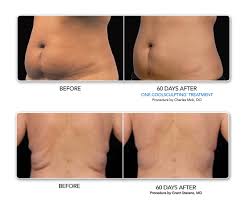Losing weight is a common goal for many individuals, and while it may seem daunting at first, adopting a healthy and sustainable approach can make the journey more enjoyable and successful. Instead of opting for quick fixes or extreme diets, consider making long-term lifestyle changes that promote overall well-being. This article will guide you through a holistic approach to weight loss, encompassing dietary choices, physical activity, and mental well-being.
#1 Establish Realistic Goals
Setting realistic and achievable weight loss goals is crucial. Aim for a gradual and steady approach, aiming to lose 1-2 pounds per week. This ensures that changes are sustainable and reduces the risk of regaining lost weight.
#2 Balanced Diet
Adopting a balanced and nutritious diet is fundamental to weight loss. Focus on incorporating a variety of whole foods, such as fruits, vegetables, lean proteins, whole grains, and healthy fats. Portion control is also essential – pay attention to hunger and fullness cues, and avoid mindless eating.
#3 Hydration
Drinking an adequate amount of water is often overlooked but plays a significant role in weight loss. Water helps with digestion, regulates appetite, and can even boost metabolism. Aim for at least eight glasses of water a day, and consider replacing sugary beverages with water or herbal teas.
#4 Regular Physical Activity
Incorporating regular physical activity is crucial for weight loss and overall health. Find activities you enjoy, whether it’s walking, jogging, swimming, or dancing, and aim for at least 150 minutes of moderate-intensity exercise per week. Additionally, strength training can help build muscle, boosting your metabolism.
#5 Mindful Eating
Practice mindful eating by paying attention to the sensations, flavors, and textures of your food. Avoid distractions like screens and take your time to savor each bite. This can lead to better digestion, improved satisfaction, and reduced overeating. Practicing meditation can help you in mindful eating.
#6 Adequate Sleep
Adequate sleep is often underestimated in its impact on weight loss. Lack of sleep can disrupt hormones related to hunger and satiety, leading to increased cravings for unhealthy foods. Aim for 7-9 hours of quality sleep each night. If you have sleep problems, then consider sleep supporting natural supplements like Magnesium Breakthrough (read Magnesium Breakthrough review)
#7 Stress Management
Chronic stress can contribute to weight gain through increased cortisol levels. Adopt stress-reducing practices such as meditation, yoga, deep breathing exercises, or hobbies to manage stress effectively. ShapeShifter Yoga is a superb online yoga program (read Shapeshifter Yoga review), if you need one.
#8 Monitor Progress
Keep track of your progress to stay motivated. This could involve keeping a food journal, logging your exercise routine, or taking regular measurements. Celebrate small victories and learn from setbacks.
#9 Weight Loss Supplements
There are dozens of supplements in the markets that claims to help weight loss. For example, Progenifix is a great brand you can buy to manage your overweight (read Progenifix review).
#10 Seek Professional Guidance
If needed, consult with healthcare professionals, such as a registered dietitian or a fitness trainer, to create a personalized plan tailored to your individual needs and health conditions.
Final Thoughts
Losing weight is a multifaceted journey that requires a combination of healthy eating, regular exercise, and mental well-being. By adopting a balanced and sustainable approach, you can achieve your weight loss goals while promoting overall health and vitality. Remember that the key is consistency and making choices that support a healthier lifestyle in the long run.






